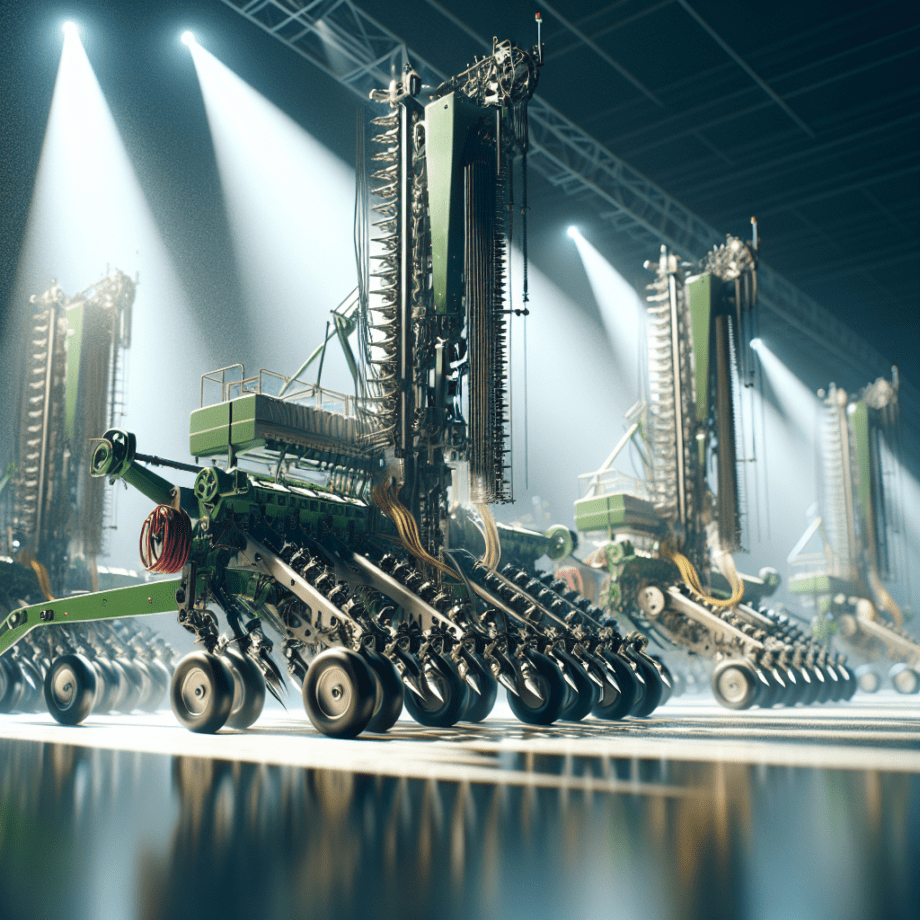Seed drills are essential pieces of agricultural machinery that have revolutionized modern farming by ensuring precise seed placement and optimal crop yields. This article delves into the various types of seed drills and their specific uses in contemporary agricultural practices.
Types of Seed Drills
Mechanical Seed Drills
Mechanical seed drills are among the most traditional types of seed drills used in farming. These machines operate through a series of gears and levers that control the distribution of seeds. The primary advantage of mechanical seed drills is their simplicity and reliability. They are less prone to technical failures and can be easily maintained by farmers with basic mechanical skills.
Mechanical seed drills are particularly effective for small to medium-sized farms where the cost of more advanced machinery may not be justified. They are also suitable for a variety of crops, including grains, legumes, and vegetables. The precision of seed placement with mechanical seed drills ensures uniform crop growth and reduces the need for thinning.
Pneumatic Seed Drills
Pneumatic seed drills use air pressure to transport seeds from the hopper to the soil. This type of seed drill offers greater precision and control over seed placement compared to mechanical seed drills. The air pressure system ensures that seeds are evenly distributed and placed at the correct depth, which is crucial for optimal germination and growth.
Pneumatic seed drills are ideal for large-scale farming operations where efficiency and precision are paramount. They are commonly used for planting high-value crops such as corn, soybeans, and sugar beets. The advanced technology in pneumatic seed drills allows for variable rate seeding, which can be adjusted based on soil conditions and crop requirements.
Hydraulic Seed Drills
Hydraulic seed drills utilize hydraulic systems to control the movement and placement of seeds. These drills offer a high degree of accuracy and are capable of handling a wide range of seed types and sizes. The hydraulic system allows for easy adjustments to seeding depth and spacing, making them versatile for different farming needs.
Hydraulic seed drills are particularly useful in no-till farming practices, where minimal soil disturbance is desired. They are also effective in challenging terrains and soil conditions, providing consistent seed placement even in uneven fields. The durability and robustness of hydraulic seed drills make them a valuable investment for modern farmers.
Precision Seed Drills
Precision seed drills represent the pinnacle of seeding technology, offering unparalleled accuracy and efficiency. These drills are equipped with advanced sensors and GPS technology to ensure precise seed placement and optimal spacing. Precision seed drills can be programmed to plant multiple seed varieties in a single pass, allowing for complex crop rotations and intercropping systems.
The use of precision seed drills is particularly beneficial for high-value crops and organic farming practices, where precise seed placement can significantly impact crop yields and quality. The technology also allows for real-time monitoring and adjustments, ensuring that seeds are planted under optimal conditions.
Uses of Seed Drills in Modern Farming
Improved Crop Yields
One of the primary benefits of using seed drills in modern farming is the significant improvement in crop yields. By ensuring precise seed placement and optimal spacing, seed drills reduce competition among plants for nutrients, water, and sunlight. This leads to healthier plants and higher yields. Additionally, the uniformity of seed placement reduces the need for thinning and replanting, saving time and labor costs.
Soil Conservation
Seed drills play a crucial role in soil conservation by minimizing soil disturbance during planting. Traditional methods of broadcasting seeds can lead to soil erosion and loss of valuable topsoil. In contrast, seed drills place seeds directly into the soil with minimal disruption, preserving soil structure and preventing erosion. This is particularly important in no-till farming practices, where maintaining soil health is a priority.
Efficient Use of Resources
Modern seed drills are designed to optimize the use of resources such as seeds, water, and fertilizers. By ensuring precise seed placement, seed drills reduce seed wastage and ensure that each seed has the best chance of germination and growth. Additionally, many seed drills are equipped with systems for applying fertilizers and pesticides simultaneously, reducing the need for additional passes over the field and conserving fuel and labor.
Adaptability to Different Crops and Conditions
Seed drills are highly adaptable and can be used for a wide range of crops and soil conditions. Whether planting grains, legumes, vegetables, or high-value crops, there is a seed drill designed to meet the specific needs of each crop. The ability to adjust seeding depth, spacing, and rate allows farmers to tailor their planting practices to the unique requirements of their fields, ensuring optimal crop performance.
Technological Advancements
The integration of advanced technology in modern seed drills has further enhanced their efficiency and effectiveness. GPS-guided systems, variable rate seeding, and real-time monitoring are just a few examples of the technological advancements that have transformed seed drills into sophisticated farming tools. These technologies allow for precise control over planting practices, leading to better crop management and higher yields.
Conclusion
Seed drills have become indispensable tools in modern farming, offering numerous benefits in terms of precision, efficiency, and resource conservation. The various types of seed drills, including mechanical, pneumatic, hydraulic, and precision seed drills, cater to the diverse needs of contemporary agriculture. By improving crop yields, conserving soil, and optimizing resource use, seed drills play a vital role in sustainable farming practices. As technology continues to advance, the capabilities of seed drills will only expand, further enhancing their value to farmers worldwide.
